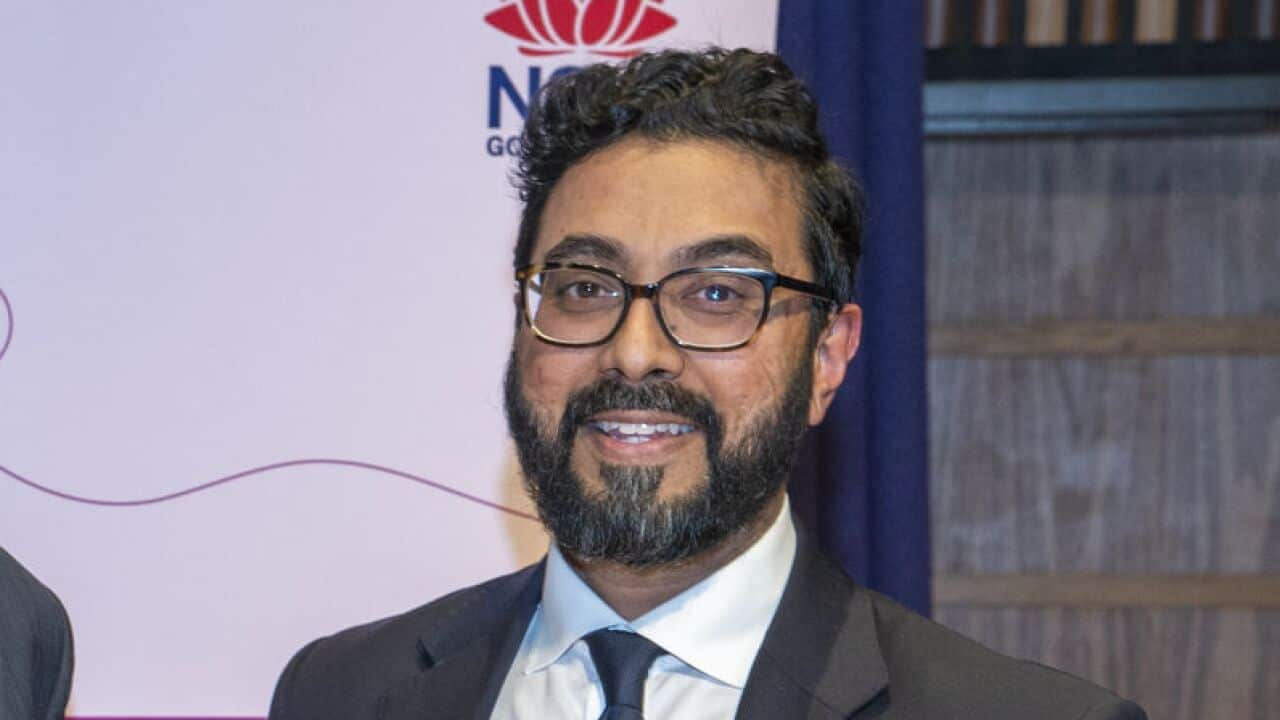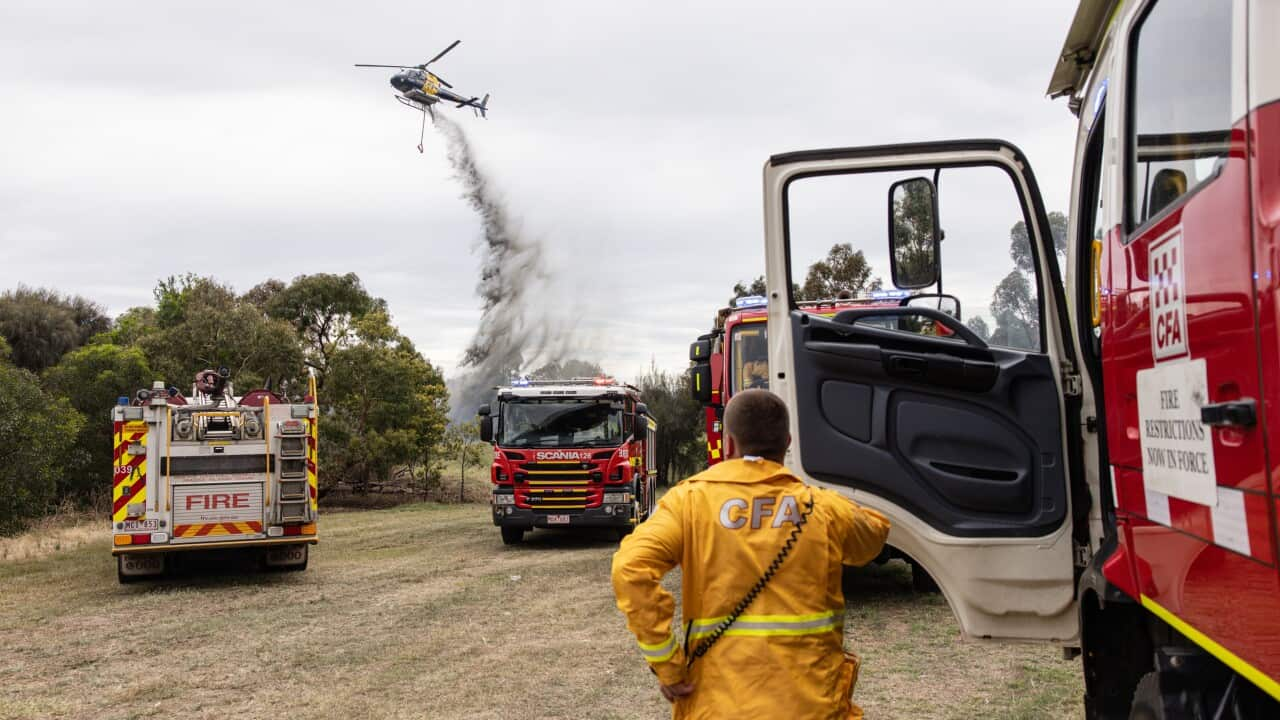From end-of-year work parties to social gatherings, alcohol has long been synonymous with the holiday period for many Australians.
And while more people are reducing their alcohol intake or opting for a sober lifestyle, the festive season can be a particularly challenging time.
Writer and podcaster Jill Stark was working as a health reporter but would binge drink on weekends or at parties, which culminated in her winning a “drinking award” at a work Christmas party.
“At the time I thought it was a badge of honour, I was like ‘oh everybody thinks I’m a wild party girl’,” she said.
“But really it was a sign of how things had got out of balance, and at that time of year it’s just one party after another and every event seems to have alcohol as a centre point.”
She decided to go sober for a year and wrote a book detailing her journey. After the book was published she started drinking more mindfully and moderately, but in 2019 she decided to cut out alcohol completely due to debilitating anxiety.
Stark said the festive season can be difficult for anybody struggling with their relationship with alcohol.
“At work parties, or catch-up with neighbours or at your gym, that’s often when people drink more because they feel awkward and uncomfortable, so we think alcohol will make us more comfortable and relaxed,” she said.
“Often that’s when you wake up the next morning having done and said things you regret. So I feel like it’s a bit of a minefield this time of year for a lot of people. And it is a time that I think a lot of people reflect on the role alcohol plays in their life.”
Jill Stark used to binge drink and “write herself off” on weekends, but stopped drinking completely in 2019. Source: Supplied / Jill Stark
Are Australians drinking less?
According to DrinkWise a not-for-profit organisation that campaigns for a safer drinking culture, 53 per cent of Australians want to reduce their alcohol consumption.
But most Australian adults do still drink.
The 2022–2023 National Drug Strategy Household Survey (NDSHS) found that of the population aged 14 and over, 69 per cent had consumed alcohol in the previous 12 months.
According to the NDSHS, 31 per cent of people drank alcohol in a way that put their lives at risk, which includes drinking more than 10 standard drinks per week on average or having more than four standard drinks in a single day at least once a month.
The number of people drinking alcohol daily appears to be gradually declining and has gone from 9.1 per cent in 2004 to 5.2 per cent in 2022-23.
The most recent Household, Income and Labour Dynamics in Australia (HILDA) Survey found a decline in binge drinking between 2007 and 2021, falling from 31 to 24.3 per cent for males and from 19.6 to 14.8 per cent for females.
Is Australia’s alcohol culture changing?
Simon Strahan, CEO of Drinkwise, which is funded by voluntary contributions from the alcohol industry, said Australians’ attitudes and behaviour towards alcohol has shifted in the past 20 years.
“They’re drinking in moderation more than ever before, risky drinking continues to decline and we’re seeing substantial changes over the last two decades in things such as underage drinking,” he said.
“And we are also seeing those trends around abstinence levels increasing.”
Strahan said he believes the increase in alcohol-free drink options — such as zero-alcohol beer and wine — combined with education was helping to change attitudes around alcohol and helping people feel less pressured to drink.
According to research from DrinkWise, 62 per cent of Australians over 25 said they feel more comfortable choosing not to drink compared to 10 years ago.
“They feel more empowered to say no and that’s something we can all look to as a positive sign of that change in culture,” he said.
“And that rise in products such as zero alcohol or lower strengthed alcohol products are actually allowing people to still go out and socialise, and if they want that taste, they can still have it, but with lower alcohol or zero alcohol content.”
How to stay sober over Christmas
For anybody trying to reduce their alcohol consumption during the festive season, Strahan advises setting a strict drink limit before going to a social function.
“Our advice really is around making sure that people set themselves limits, stick to those limits and make sure they’re including some alcohol-free days,” he said.
“But also if they are making the choice not to consume alcohol, they can be reassured that many other people will be doing the same.”
When it comes to drinking in moderation, DrinkWise advises alternating between alcoholic and non-alcoholic drinks, staying hydrated, and opting for low-strength alcohol when possible.
Stark believes that while attitudes towards alcohol are slowly changing, it remains “very much ingrained” in the national identity to have a drink at parties and festive occasions.
For anybody trying to stay sober or struggling with alcohol, she said it is important to have supportive people around.
“I would say have a wingman, have someone who completely backs you in your choices and understands why you don’t want to drink,” she said.
“If you share with people why (sobriety) matters to you, then I think it makes them come on the journey with you — and if they are pressuring you, then unfortunately, you have to think about ‘well, are these really my friends?'”
Alcohol is a big part of many festive occasions. Source: Getty / Picture Alliance/dpa
Stark said it is also important to consider what you will do if cravings hit, and assess whether non-alcoholic beer and wine are a good substitute, or whether they could actually make you want to drink alcohol.
She also suggests having an ‘exit plan’, not feeling pressured to stay late at events and being patient with yourself — especially if you don’t meet your goals.
“It might take practice to go into situations where you drink less, or you don’t drink at all,” she said.
“I think it’s good to set yourself realistic goals and just be a little gentle with yourself, it can be a really difficult time of year for a number of reasons.
“So just be kind to yourself and know that you can make changes, but you just need to be patient.”













